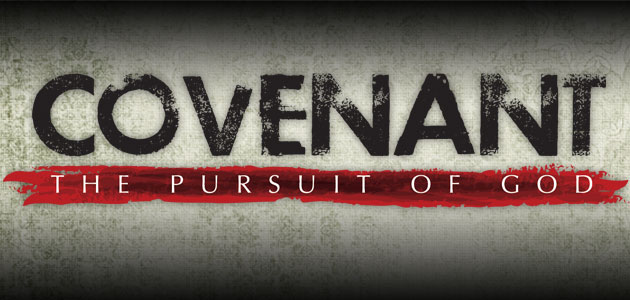Home | About Us | Directions | Bulletins | Sermons & Audio | Cross Of Christ Studies | Classes | Student and Parent Resource Page | Dangers Facing the "Non-Traditional"
Click Here for the Latest Edition of the Auburn Beacon
To Subscribe to
the Auburn Beacon please send an E-mail to:
larryrouse@aubeacon.com

Hear Buddy Payne
Speak in Auburn, Alabama
All Joy and Peace in Believing
![]()
![]()
Our God He is Alive
(Evidences from DNA)
![]()
![]()

The Final Stages of Israel's Apostasy
Adult
Bible Class in Progress - Sunday
Morning 9:30 - Auditorium Class
Click For Outlines and Audio
Planning to Visit Us?
What
to Expect
Current Class
Information
Thoughts To Ponder
For our light affliction, which is but for a
moment, is working for us a far more
exceeding and eternal weight of glory
(2 Cor. 4:17)
You will need
the following viewers
to view many of the
files on this site.
![]()
Click here to
download
Adobe Acrobat Reader
![]()
Click here to
download
Microsoft PowerPoint Viewer
University church of Christ
Assembly Times
Sunday
Bible Classes (9:30)
AM Worship (10:20)
PM Worship (6:00 pm)
Wednesday
Bible
Classes
(7:00 PM)
Location
449 North Gay Street
Auburn, AL 36830
Click Here for Specific
Directions
The Rat-Race
by Fanning Yater Tant
Every one of us inhabits two worlds. One is the outer, visible, material world; the other is the inner world of the spirit. This outer world has in it fire and flood and famine. It has earthquakes, wars, cruelty, and injustice. It has fierce competition, trickery, deceit, the enormous pressure of modern society. It is familiarly called "the rat-race." The other world, the world of the spirit, has to do with one's reaction or response to the rat-race. It is in this inner world that the Christian finds strength and capability to cope with the outer world. This is precisely what the Apostle Paul was talking about when he wrote, "We are pressed on every side, yet not straitened; perplexed, yet not unto despair; pursued, yet not forsaken; smitten down, yet not destroyed... Wherefore we faint not; but though our outward man is decaying, yet our inward man is renewed day by day. For our light affliction, which is for the moment, worketh for us more and more exceedingly an eternal weight of glory; while we look not at the things which are seen, but at the things which are not seen: for the things which are seen are temporal; but the things which are not seen are eternal" (2 Cor. 4:8-9, 16-18).
How to Survive
As I write these lines l have just received word of the death by suicide of a lovely twenty-four year old girl in New York City. She was the daughter of a friend of mine (Jewish), and apparently had much to live for. Her parents are wealthy, and the girl had had everything that most people would call "the good life." Educated at one of the most prestigious girls' school of the East, attractive and talented, she had made frequent trips to Europe, Hawaii, and other well publicized vacation spots (including Las Vegas), but her restless spirit had never found that elusive thing without which none of us can long survive inner peace. Agnostic (perhaps atheistic), she simply found herself unable to cope with "the rat-race," and had accepted the solution once contemplated by Shakespeare's melancholy Dane: "To die; to sleep; No more; and by a sleep to say we end The heartaches and the thousand natural shocks, That flesh is heir to, 'tis a consummation devoutly to be wished." Even her Jewish faith could not measure up when the crucial test confronted her. There are certain essentials of the spirit, certain basic requisites that are absolutely vital to survival.
Basic Convictions
That "man shall not live by bread alone," is not only true because the Savior said it, but it was true thousands of years before the babe of Bethlehem was ever wrapped in swaddling clothes and laid in a manger. In the very composition of man's nature one finds the reason why this was, and is, true. Convictions concerning life, its meaning and purpose, are as essential to his mental health and stability as food and air and water are to his physical well-being. Now, those convictions may be misguided and mistaken, and often are. But they are also indispensable. Without them life becomes indeed that meaningless, bootless misadventure that caused another of Shakespeare's characters to declare that life "is a tale told by an idiot; Full of sound and fury, signifying nothing." No doubt the lovely young Jewess who ended her brief life so tragically in New York City a few days ago had come to that conclusion. The rat-race around her became unbearable. She had no inner resources, no "invisible means of support" as someone put it, to sustain and strengthen her. The turbulent and dismaying world in which she lived simply became too much for her.
Those convictions, even when based on falsehood, can be profoundly life sustaining. Augustus Ceasar was barely five feet seven inches tall, pale and delicate, with a weak throat and poor circulation. All his life he had to live on a carefully restricted diet, and was in constant struggle against bodily frailty. But historians adjudge him to have been perhaps the greatest of the Roman Ceasars! And one vital element in his amazing career is undoubtedly the fact that as a youth he had visited a famous astrologer, Theogenes by name, to have his horoscope cast. When Theogenes looked into the youth's horoscope, so the story goes, he was so overwhelmed with awe that he fell flat on his face and worshipped. You and I, of course, do not believe in astrology. But Augustus did. It was superstition, to be sure, but because he believed it, his whole life was lived on the basis of that conviction. He did prodigious things in his life because he believed he was destined for such greatness.
A conviction may be not only based on error, as with Augustus, but it may be also diabolical, as was the case with wild John Brown of Kansas, who truly believed that God had ordered him to free the slaves of America by a violent overthrow of the slave-holding society. Old Osawatomie John was wrong, to be sure, but one can scarcely conceive of the fiery abolitionist snuffing out his own life because of the pressures of the world about him. He was perfectly willing to die - not because his "life had no meaning," but precisely because it DID have meaning. He was God's instrument, so he believed, to accomplish God's will.
Constant Renewal
Probably all of us who have ever obeyed the gospel of Christ have been aware, however dimly, of some inner conviction that our lives have meaning and purpose. But amid the clamorous and strident voices of a godless society we tend often to let these convictions erode. We get caught up in the wild tumult and excitement of modern living, perhaps trapped in the drudgery and monotony of some grinding, soul-destroying occupation, and over a period of years find our faith gradually becoming less and less meaningful. Until, finally, without our quite realizing how it happened, we confront some crisis in life - and find our faith is not adequate for the hour.
To avoid the tragedy it is essential that there be a constant and continuing renewal of our affirmations. The Lord's Supper surely is designed to "proclaim the Lord's death" to the world, but also to renew and re-enforce our own deep commitment to the Lord and to strengthen us for the demands of life. Our religious forebears spoke often of what they called "the means of grace," by which they meant prayer, meditation, Bible study, and frequent conversations with one another concerning spiritual things. Our generation has largely lost sight of these "renewal techniques," but they are vital! Neglect of them is fraught with great peril, and may well result in ultimate loss of faith completely. Because VANGUARD seeks to be "a journal for growing Christians," it is our constant aim to keep these truths ever in the forefront of our thinking and our attention.
Practical Application
A third essential factor in combating "the rat-race" is in a daily and persistent application of the truths and principles inherent in the body of our convictions. James states it like this, "If a man say he hath faith, but have not works? can that faith save him? If a brother or sister be naked and in lack of daily food, and one of you say unto them, Go in peace, be ye warmed and filled; and yet ye give them not the things needful to the body; what doth it profit?" (James 2:14-16.) There are two essentials here, one physical, one spiritual. The brother or sister who is lacking physical food will die unless that food is received; the brother or sister who says "he hath faith" but who does not exercise that faith by supplying the needs of the starving brother will find his faith dying also as time goes by. There must be implementation, application.
Conclusion
These three elements, convictions, renewal, and application are all vital to our living successful Christian lives and surviving the rat-race of modern society. A great deal of our thinking and writing and preaching has concentrated on the first of these, and often to the neglect of the other two. But all three are vital. We neglect any one of the three at our own peril. It is the aim of this journal, and shall be the constant goal of its editor to keep emphasizing all of these essentials in proper balance and perspective. The dangerous and threatening outer world in which we live must be met by an unshakeable faith in our God and our destiny as His children, a constant and unceasing renewal of that faith, and a continuing application, day by day, of the teachings and principles of that faith in our contact with others and in the areas of our own living. This will keep us always as "growing Christians" who are in the world, but not of the world.
Vanguard – Oct, 1975
Other Articles by Yater Tant
My People is the Enemy
They Shall Walk and not Faint
Reaping the Whirlwind
A Tale of a Sheep
Jesus and Pilate's Wife
Larimore and Tant
Going Home
Authorized by a Well Defined and a Clear-Shown Majority of The Churches of Christ in Texas
For Past Auburn Beacons go to:
www.aubeacon.com/Bulletins.htm
Anyone can join the mailing list for the Auburn Beacon! Send your request to:
larryrouse@aubeacon.com






